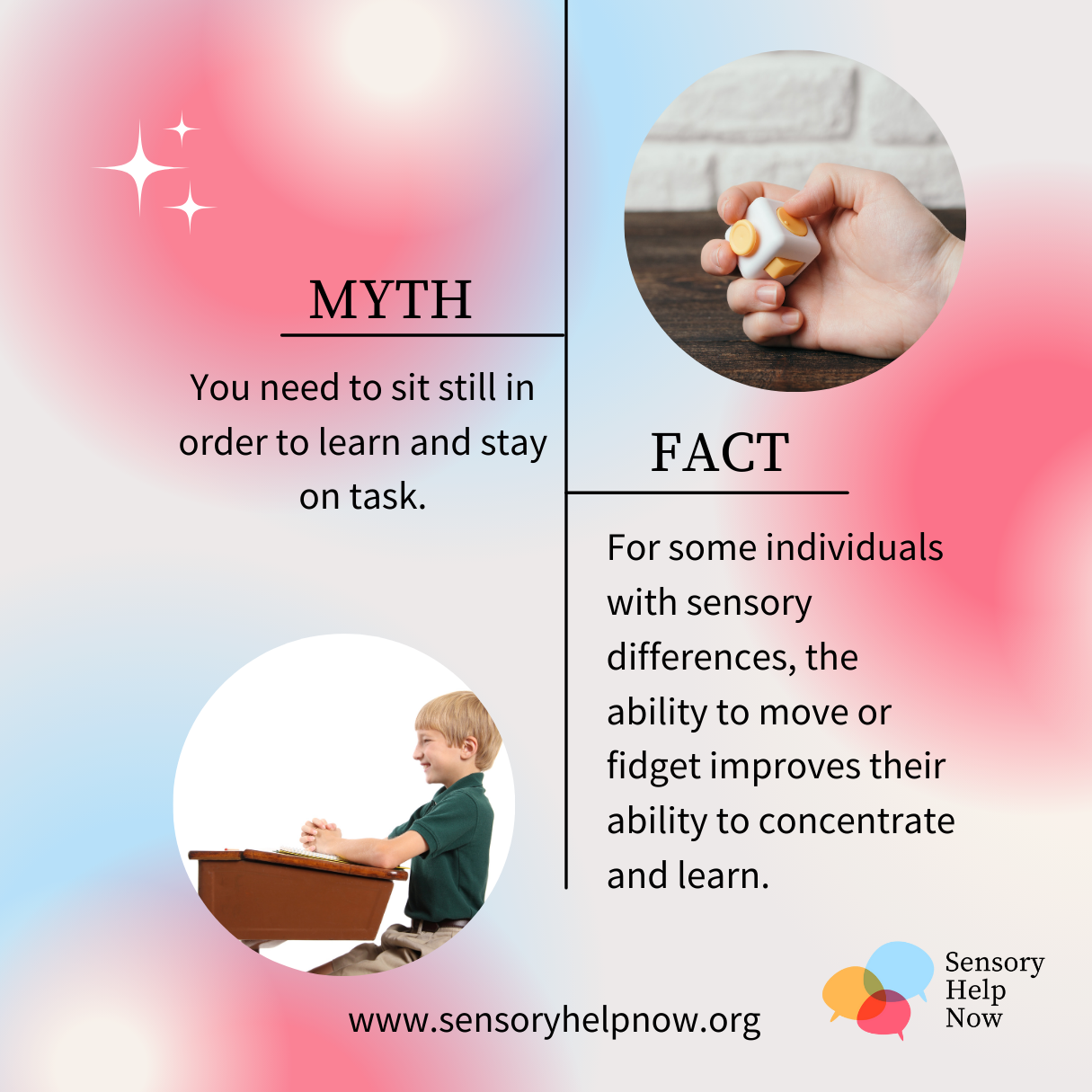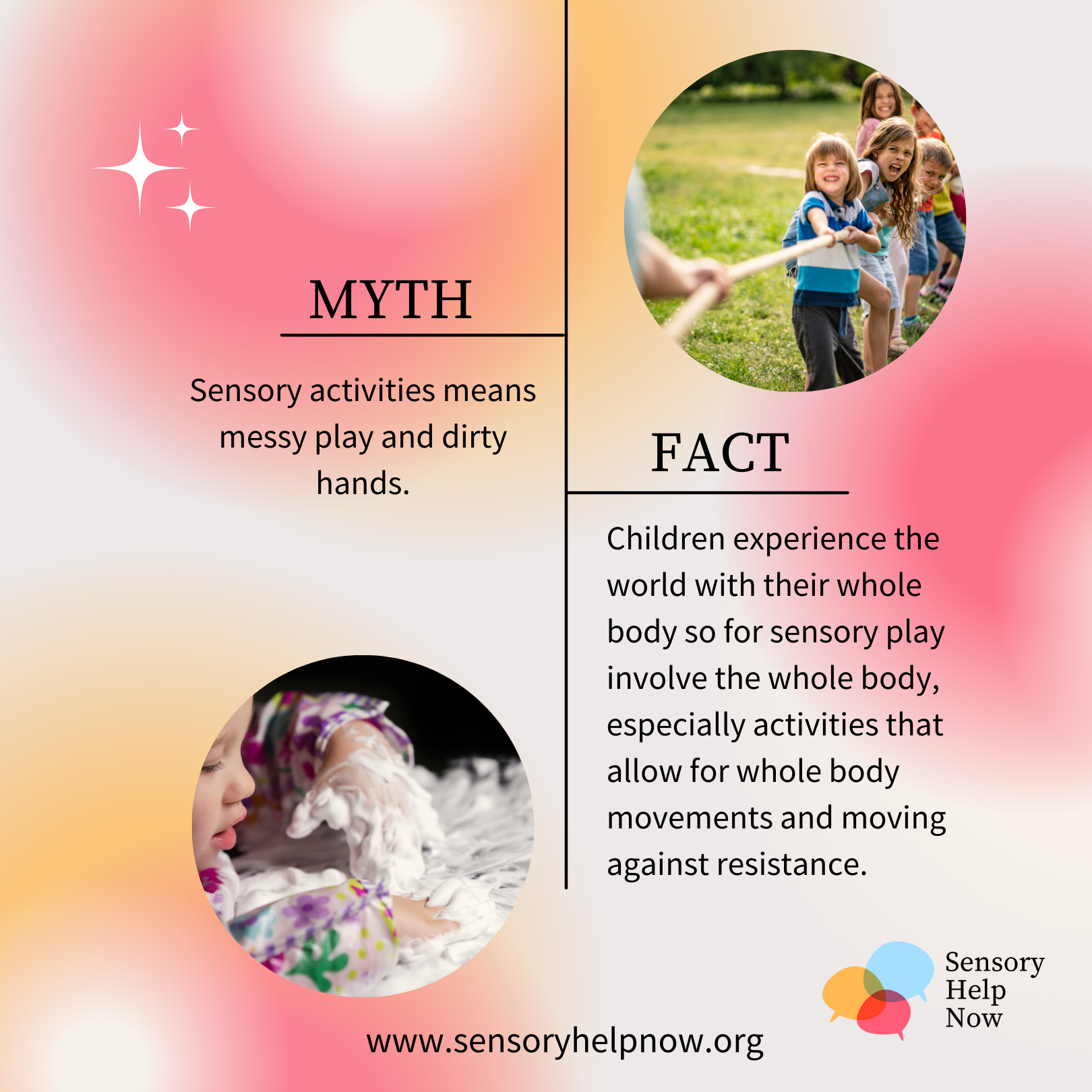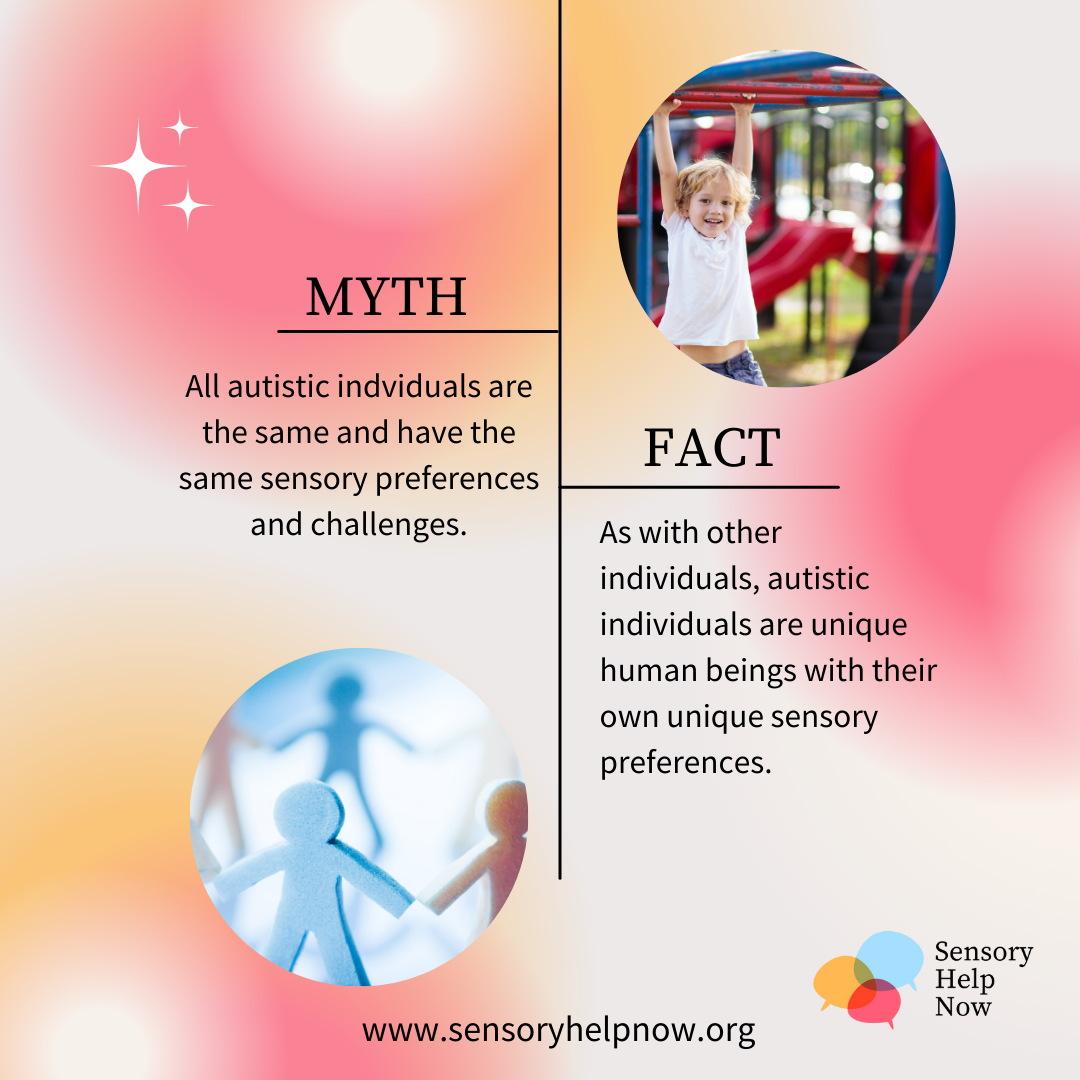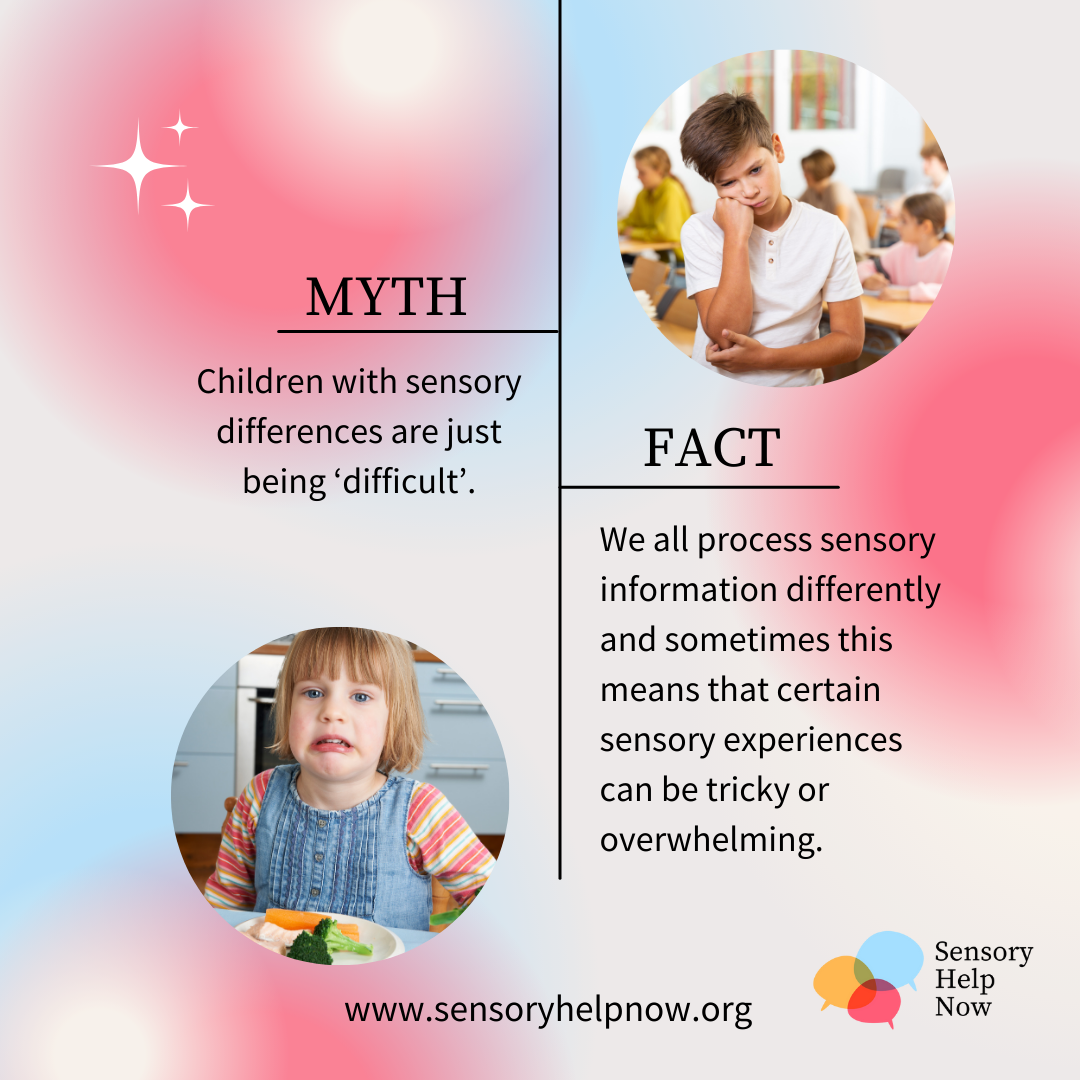Sensory Myth or Fact?
13 May 2025
Over on our Instagram channel, we've been looking at busting some sensory myths! How many of these did you used to believe?

People often wrongly assume that children and young people with sensory differences lack self-control; however, that is not the case.
If you have any questions or concerns about your child's processing of sensory input and how that impacts them, come and check out our forum, where you can ask us anything related to sensory processing.

There is a lot more to sensory differences than just being over-responsive or sensitive to certain types of sensory input.

Sometimes children with sensory differences can be told off for moving or fidgeting whilst in a classroom or other situation where they need to listen and pay attention. The reality is that, for some children, movement or fidgeting is essential to help them pay attention and take in information.

People often assume that there are behavioural reasons for children and young people with sensory processing differences to react to sensory input or stimuli in a specific way. However, for most people, this is incorrect.

People often think that all children respond to sensory activities in the same way. In fact, what works for one child might not be helpful for another, depending on their sensory needs and preferences. Whilst it is good to try a variety of activities, pay attention to how your child feels during and after the activity.

When people think of sensory activities, messy play often comes to mind. Actually, there is more to sensory play than sand trays, shaving foam and other tactile activities. Activities that require the whole body to move through space, especially heavy work activities and moving the body against resistance, are great for developing body scheme and motor coordination.

Whilst many children with sensory processing differences struggle with sports, particularly activities requiring balance and more advanced motor planning and coordination, others can enjoy sports and even excel at them! This is especially so for children and young people with sensory modulation difficulties, who find that participating in sports helps them with sensory regulation.

When supporting autistic children and young people, it's important to remember that all autistic individuals are unique human beings with unique sensory preferences. As with neurotypical individuals, not all autistic individuals process sensory information the same way.

It's important to remember that sensory differences are not a choice and that children and young people don't have control over how certain sensations make them feel.
One-to-One Online Coaching with a Sensory Integration Trained Occupational Therapist
If you would like support in understanding your child's unique sensory needs, you can book a 30-minute confidential online coaching session with a Paediatric Occupational Therapist (OT) trained in Sensory Integration. (Please note this is not an assessment or therapy session.)
